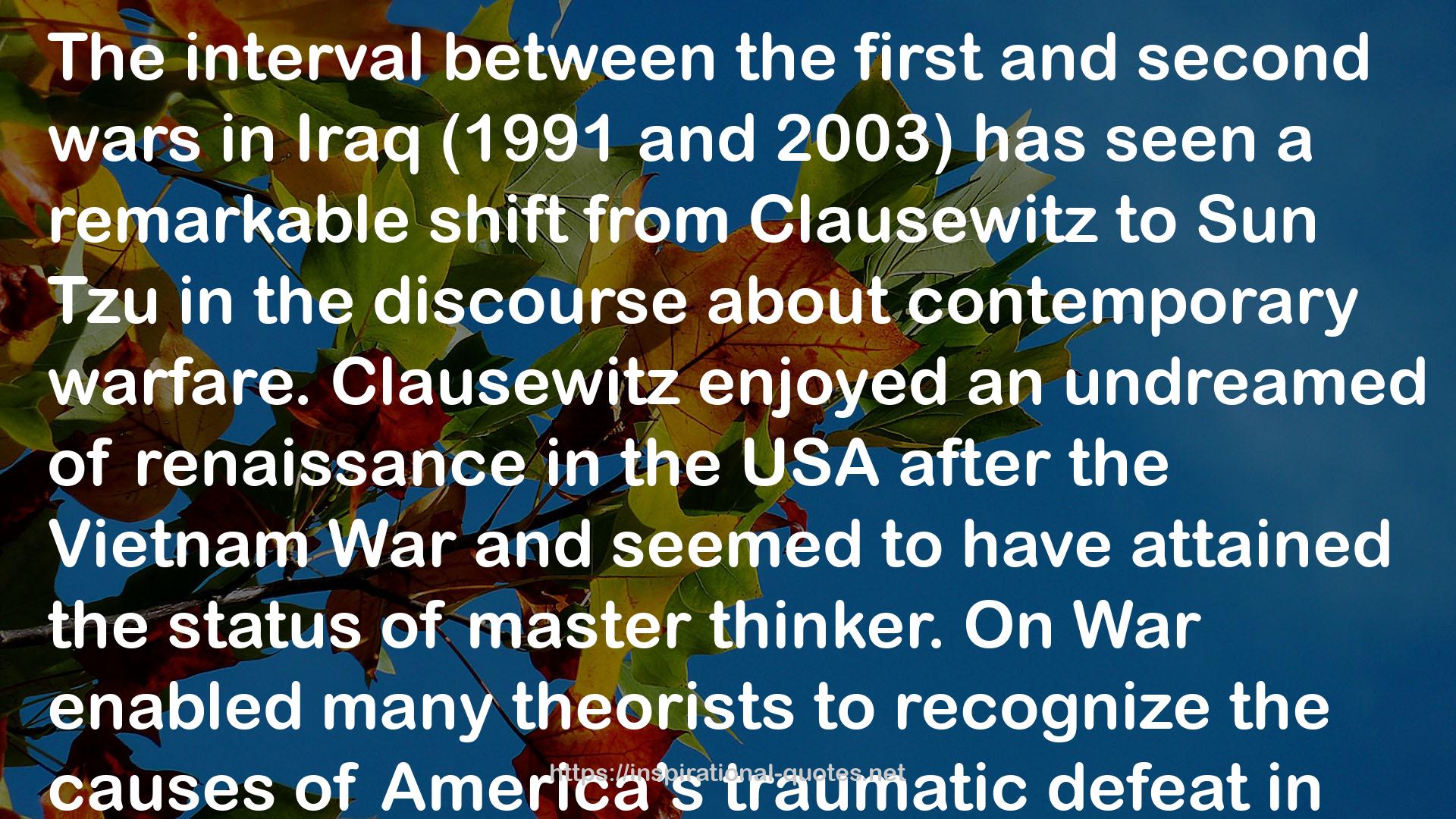" The interval between the first and second wars in Iraq (1991 and 2003) has seen a remarkable shift from Clausewitz to Sun Tzu in the discourse about contemporary warfare. Clausewitz enjoyed an undreamed of renaissance in the USA after the Vietnam War and seemed to have attained the status of master thinker. On War enabled many theorists to recognize the causes of America’s traumatic defeat in Southeast Asia, as well as the conditions for gaining victory in the future. More recently, however, he has very nearly been outlawed. The reason for this change can be found in two separate developments. Firstly, there has been an unleashing of war and violence in the ongoing civil wars and massacres, especially in sub-Saharan Africa, in the secessionist wars in the former Yugoslavia, and in the persistence of inter-communal violence along the fringes of Europe’s former empires. These developments seemed to indicate a departure from interstate wars, for which Clausewitz’s theory appeared to be designed, and the advent of a new era of civil wars, non-state wars, and social anarchy. Sun Tzu’s The Art of War seemed to offer a better understanding of these kinds of war, because he lived in an era of never-ending civil wars.
Secondly, the reason for the change from Clausewitz to Sun Tzu is connected with the ‘revolution in military affairs’. The concepts of Strategic Information Warfare (SIW) and fourth generation warfare have made wide use of Sun Tzu’s thought to explain and illustrate their position. The ‘real father’ of ‘shock and awe’ in the Iraq War of 2003 was Sun Tzu, argued one commentator in the Asia Times. Some pundits even claimed triumphantly that Sun Tzu had defeated Clausewitz in this war, because the US Army conducted the campaign in accordance with the principles of Sun Tzu, whereas the Russian advisers of the Iraqi army had relied on Clausewitz and the Russian defence against Napoleon’s army in 1812. The triumphant attitude has long been abandoned. "
― , Clausewitz's Puzzle: The Political Theory of War
